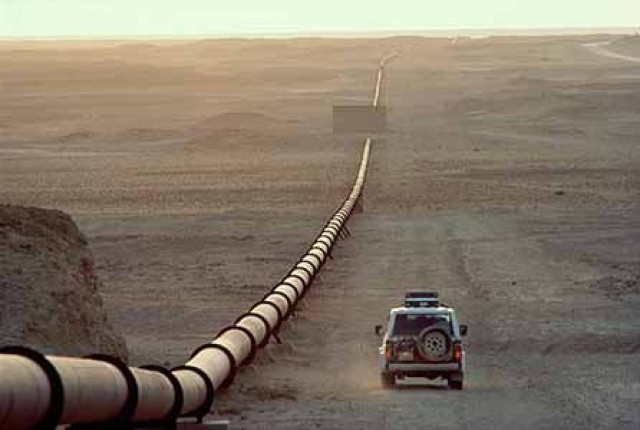Long-term deferred payments: Iran offers Pakistan oil supply on soft terms
Under the plan, an oil pipeline would be laid up to Gwadar port.

Long-term deferred payments: Iran offers Pakistan oil supply on soft terms
With a decline in oil export to the world market due to new US and European Union sanctions, Iran has offered to provide Pakistan oil on long-term deferred payments by laying a pipeline between the two countries.
The offer, which may also benefit Afghanistan, was made by Iran during a recent visit to Pakistan by its International Affairs Vice President Ali Saeedlou.
Iranian oil supply to the world market has declined by 20% following the embargo imposed by the US and EU. “Now Iran wants to provide oil to Pakistan that may be at a less rate compared to oil imports from Middle East countries like Saudi Arabia, UAE and Kuwait,” sources said, adding that Iran has expressed willingness to materialise the plan.
A senior official of the petroleum ministry said that the status of the Iran-Pakistan (IP) gas pipeline was discussed during a visit of an Iranian delegation. He confirmed that Iran had offered to supply oil on soft terms, adding that it was a long-term plan.
“We have not discussed a specific subject of the oil pipeline,” he said, adding, however, that different proposals were discussed to explore other areas of mutual cooperation in the energy sector.
Under the plan, an oil pipeline is to be laid right up to the Gwader Port, where a crude oil refinery would be set up. “Pakistan and Iran may enter into a joint venture to set up a refinery at Gwadar Port,” sources said.
They further maintained that Pakistan had also shared the plan with Afghanistan during Afghan Deputy Minister of Finance Mohammad Mustafa Mastoor’s visit to Islamabad on February 2.
The Afghan minister is reported to have remarked that it would be a good opportunity for Afghanistan to get an uninterrupted oil supply at cheaper rates.
Pakistan has been importing 45,000 barrels of Iranian crude per day on a three-month deferred payment but oil imports were stopped after the US sanctions making it impossible for countries to use the international financial system to pay for Iranian oil.
Furnace oil
According to industry sources, Iranian oil had more components of furnace oil. Pakistan’s furnace oil requirements have increased from three or four million tons in 2004-2005 to nine million tons in the current financial year. Refineries in Pakistan currently have a furnace oil production capacity of just three to 3.5 million tons per year.
Pakistan State Oil imports furnace oil to meet the power sector’s requirements.
Industry sources say that Pakistan may save 20 cents per barrel as it will no longer have to bear the costs of transporting Iranian oil.
Published in The Express Tribune, February 9th, 2012.



















COMMENTS
Comments are moderated and generally will be posted if they are on-topic and not abusive.
For more information, please see our Comments FAQ